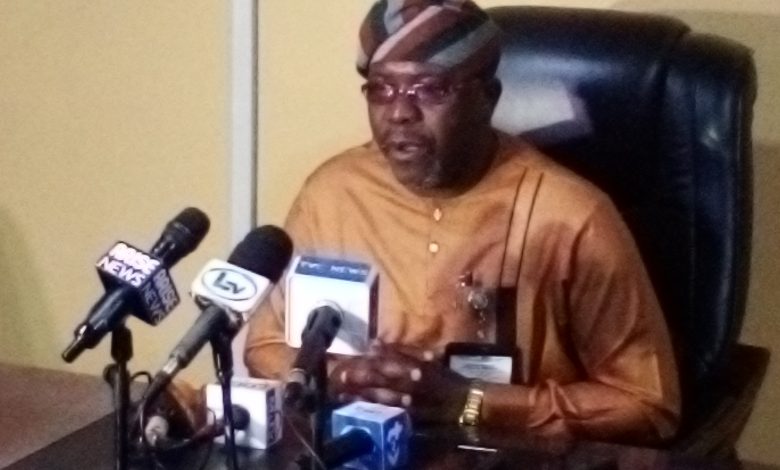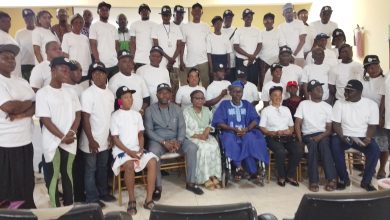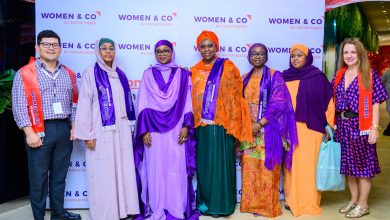NIMR Director General gives account of stewardship
..Calls for more funding for research institutes

The outgoing Director General/ Chief Executive Officer of Nigeria Institute of Medical Research, Yaba, Lagos, Prof. Babatunde Lawal Salako said that his eight years as the helmsman of the foremost health research institution in the country was eventful even as he noted that the institute under his watch recorded many milestones.
In his valedictory interactive session with journalists where he gave his score card on his stewardship, Prof. Salako explained that the institute under his leadership, carried out many researches that has helped in disease control in the country thereby improving the health conditions of Nigerians.
He noted that in the last eight years, the institute has been in the forefront of carrying out research on new drugs for HIV and malaria while two years ago, it identified a new malaria vector known as Anopheles Staphensi which was before unknown in West Africa and that the institute will continue to look at mosquito resistant vaccines as well as the efficacy of correct anti-malaria treatment as one of the ways to control and ensure that there are active drugs that will help in moving towards the elimination of malaria.
” In the last eight years, the institute has been in the forefront of carrying out researches on various diseases. During COVID-19. We collaborated with the National Centre For Disease control ( NCDC ) to test about 65, 000 Nigerians for the virus and we’re also able to develop test kits for diagnosing COVID-19 as well as share ideas regularly with the Ministry of Health
” We also brought in a new innovation on self testing and trained those that test people for the disease at home . And the institute is right now, carrying out research in the clinical department on the long term effect of people who suffered from the dreaded disease”, he said.
On training, the erudite Professor noted that the institute under his watch, has trained about 1, 6000 people including Doctors, Pharmacists and Labouratory technicians.
According to him, apart from this, the institute supports the training of Masters and PhD students and has trained about 40 researchers noting that although the number is small but will keep increasing in the coming years.
Prof. Salako whose tenure will elapse in the next two weeks noted that the institute mindful of the fact that government cannot do everything alone, set up a research foundation headed by the former Governor of Lagos State and the immediate past Minister of Works, Babatunde Raji Fashola ( SAN) which has helped to interface with government and private sector as well as members of the National Assembly and in the process helped in getting more funding from the government.
The foundation according to him has raised about N 400 million which he admitted was inadequate but a welcome development compared with what was obtainable in the past.
On prescription medicine, he lamented that most drugs used in the country are not tested nor created with the knowledge of Nigerian genes and because of this, the institute provided a bio bank for safe keep of biological materials of human beings such as blood, tissues, urine and other things that can be used to access the genetic structure of the individual; saying that it can be sequenced to determine the genetic structure of an individual to know why a particular person is resistant to drugs used for another person with similar ailment
He further noted that the bio bank is necessary so that Nigeria can have a home grown solutions that takes into cognisance the organisms causing diseases in the country and also use devices that will check diseases in the country accurately.
The Director General also explained that the institute under his leadership intensified research on other deadly diseases such as Lasser Fever, Yellow Fever, monkey pulse, hepatitis B and C, point of care for Cholera which is presently ravaging the country, , tuberculosis and cervical cancer for women.
He also announced that the institute in the last eight years has been working closely with Usman Dan Fodio University, Sokoto, University of Jos, National Veterinary Institute, Jos and National Chemical Research Institute to come up with home grown vaccine for Lasser Fever and COVID-19; saying that there is also a collaboration with Bio Vaccine Nigeria Limited partially owed by government and private sector for vaccine production.
To ensure proper collaboration between the institute and Universities for optimal result, the DG announced that NIMR has been linked academically with Universities in Nigeria noting that it will help to reduce waste in research work.
” Our researchers help to train University students and we also gain from that collaboration because our researchers now have academic experience and develop research ideas together with their counterparts in the Universities which help in reducing cost of research.
” Some of the Universities we’re working in this area are; Lead University, Ibadan, Eko Medical University, Lagos, Mountain Top University, Trinity University, University of Jos and Osun State University. We signed an MoU with them and share ideas on regular basis”, he explained.
Prof. Salako also explained that during his tenure, the annual subvention of the institute was increased from N50 million to N 2 billion which has contributed greatly to their research work.
The Director General while commending the Federal Ministry of Health and the Federal Government for their support which made his job easy, however appealed for more funding and improvement in staff welfare not only in research institutions but the entire health sector.
” Although our budgetary allocation has been increased but the institute need more funding to be able to carry out it’s numerous work. A situation whereby we depend mainly on foreign donor agencies is not the best for the country.
” Increase funding is necessary because we need to bring in more researchers so that more areas can be covered. Right now, the institute seem to be concentrating more on infections disease but it’s on record that in the next fifteen years, contagious disease might take over. We need to cover areas like cancer, hypertension, diabetes and tuberculosis which are killer diseases
” Improved staff welfare is also important and should be in all the health institutions for optimal result because when staff are well motivated, they’ll put in their best.
Prof. Salako further appealed that NIMR should be funded in such a way that it should expand it’s research focus on developing home grown solutions.
He said that while it’s true that government created National Research Fund for all research institutions in the country but in many climes such as Europe and America and even in South Africa, there is specific health fund which has helped them to grow and Nigeria need to do same
Prof. Salako noted that in as much as government have a lot of things like security of life and property , food security and providing infrastructure amongst others, health affects every aspect of human life and putting more money in the sector will be beneficial to all.





